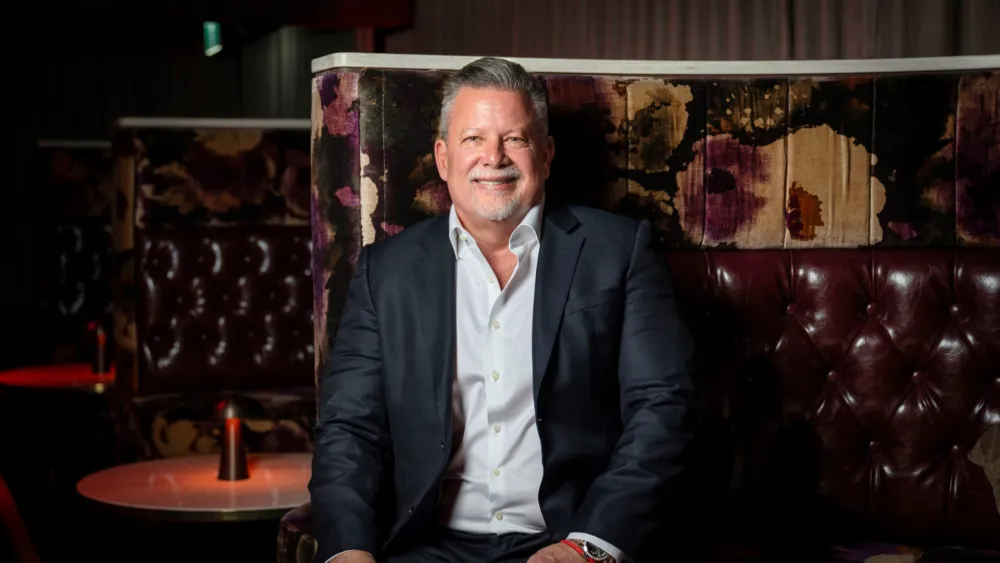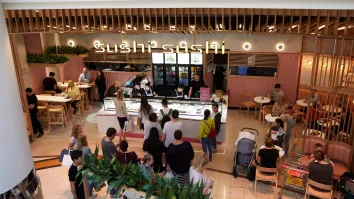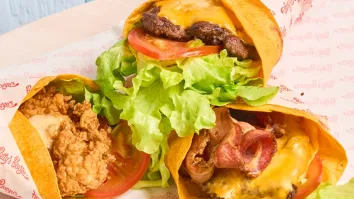
Meet the new CEO of Retail Food Group
From managing director, to head of retail, and now CEO.
Retail Food Group has just appointed Matthew Marshall as its new CEO effective 1 July.
Matthew, who was previously the Head of Retail, will now help lead RFG’s portfolio, which consists of brands like Gloria Jean’s Coffees, Donut King, Brumby’s, and Crust towards a franchise-first focus.
In a quick interview with QSR Media, Matthew discussed where he plans to lead the group.
QSR Media: Why have you accepted the position at Retail Food Group?
Matthew: I returned to Retail Food Group 3 years ago having previously spent a relatively short period in the Brumby’s brand in 2015. At that time, returning was an easy choice. It was clear to me there was a business priority to drive a retail culture that supports franchise partners to be successful.
Playing a part in a large company turnaround was appealing and despite challenges arising from the pandemic, we have worked tirelessly to establish the quality of our franchise support systems. Accepting this role at a point in time when RFG’s turnaround phase is at an end represents a significant opportunity to lead a team and build a culture that is future-focused and ready for growth. I feel I can contribute positively to these outcomes so did not hesitate in accepting the role.
Can you give us a hint on some future focus for you as the CEO of RFG?
Our business is built on the success of our franchise partners. Our ‘franchisee first’ mantra will continue to guide our strategy and has never been more important as we face tougher economic conditions in the short term. Supporting our franchise partners with quality marketing, product innovation, retail pricing strategies, cost of goods initiatives, landlord negotiations and operational store support are some of the foundational systems that we continue to focus on.
In addition, unlocking incremental revenue opportunities via improved omnichannel marketing strategies, investment in technology and eCommerce platforms to enhance customer experience and the expansion of virtual brands, are all opportunities actively being pursued.
With everything we do, our focus will be on continuing to support our people and our franchise partners to drive a sustainable growth trajectory.
What are your thoughts on Australia’s fast food market?
Australia is a highly competitive and somewhat saturated QSR market when it comes to the density of locations, particularly across the eastern seaboard where the majority of our population lives. This means that brands need to find ways to remain relevant and connect with their audience. This might be via product quality and innovation, unique and interesting brand collaborations, personalised loyalty offers, or simply the speed, reliability and ease of service offered at the store. Whilst finding ways of connecting with our core audience to build loyalty whilst attracting new customers is not a new idea, doing it better than our competitors in a market with high customer expectations is the challenge, especially when people are considering how to spend their discretionary income.
What are some interesting trends you have seen in the fast-food and restaurant market?
Over the last few years, many food and beverage businesses have been forced to look at new ways of operating. This has driven some interesting innovations around virtual brands from within existing outlets and increased access for brands to explore home delivery. The explosion of online aggregators and the shift from pure dine-in restaurants have changed the way we consume meals and think about food.
Arguably some of this is a Covid phenomenon, and normalisation has already occurred with people eating out again. However, I think the shift to omni-channel is permanent and brands that can leverage their strengths to create new revenue opportunities at low cost for the operator will thrive if they exceed the high expectations of the customer.

























